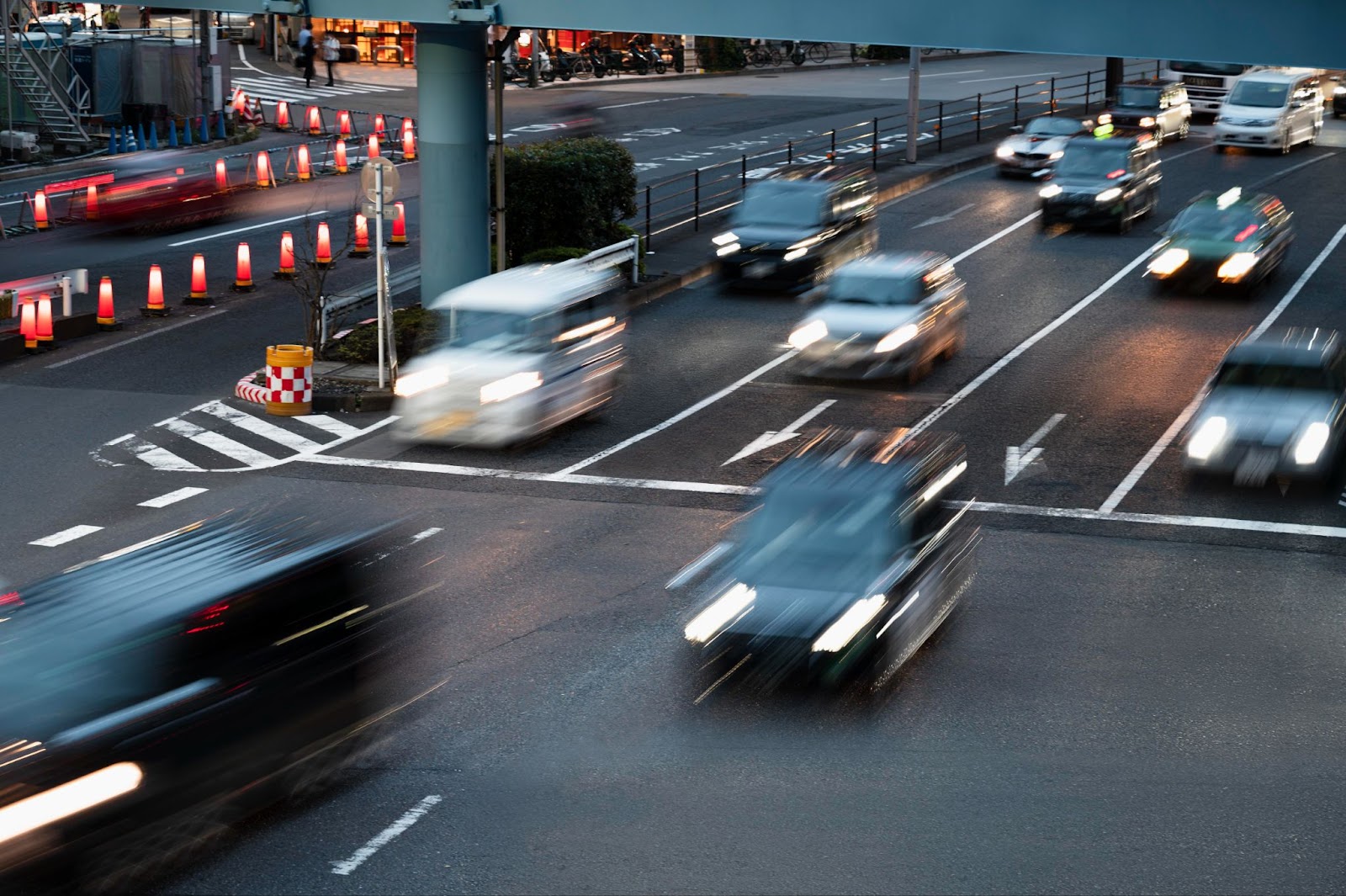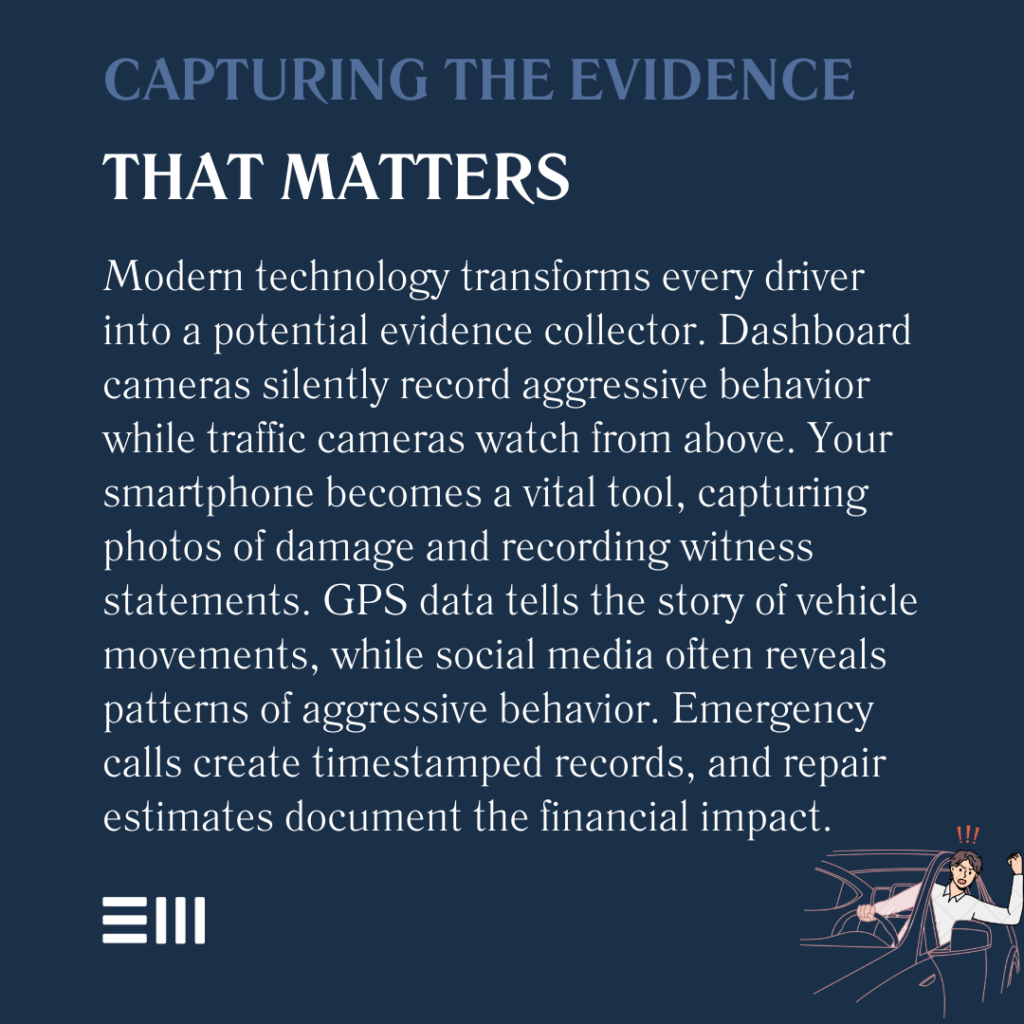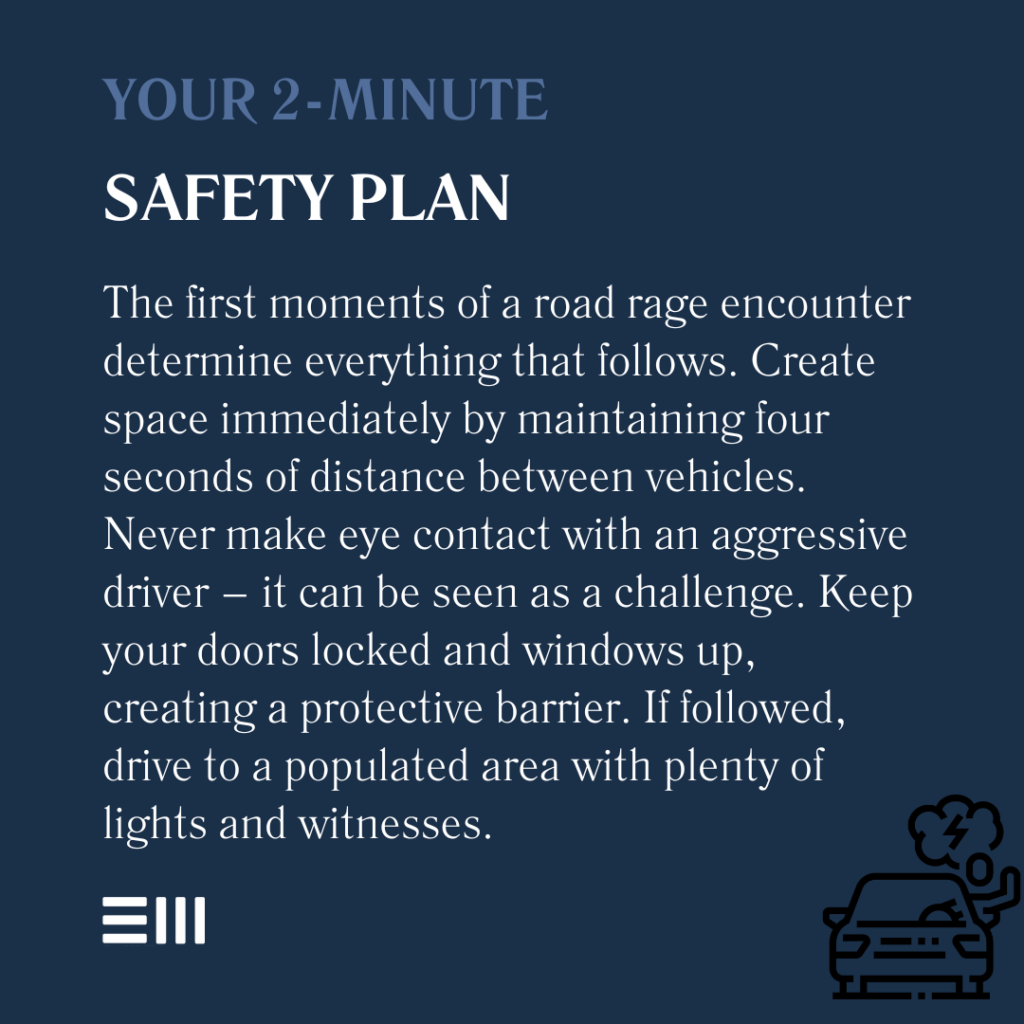
In 2018, more than 200 people were shot and either killed or injured in road rage incidents, a number that doubled by 2023. This alarming rise means that, in 2023, someone was shot in a road rage incident every 18 hours.
A quick tap of the horn. A flash of high beams. A sudden lane change. In mere moments, an ordinary Alabama commute can transform into a dangerous confrontation that leaves lasting physical, emotional, and legal scars.
Road rage turns familiar streets into battlegrounds where minor frustrations escalate into criminal charges, civil lawsuits, and life-altering consequences.
What begins as a split-second reaction can end in the courthouse, changing the trajectories of multiple lives over nothing more than a perceived slight on the highway.
Understanding Road Rage Under Alabama Law
Road rage manifests in various forms.
- Aggressive driving classified as criminal endangerment when threatening behavior occurs, carrying mandatory minimum penalties and potential license suspension;
- Intent to cause fear or harm elevates charges to criminal assault, with enhanced penalties if weapons are involved;
- Vehicle use as a weapon carries enhanced penalties, including potential felony charges and mandatory anger management programs;
- Multiple-party liability is possible in chain-reaction incidents, affecting both criminal charges and insurance claims;
- Documentation of prior road incidents affects sentencing, with repeat offenders facing escalating penalties;
- Civil claims can proceed independently of criminal charges, allowing victims to seek compensation regardless of criminal prosecution;
- Insurance coverage often disputed in intentional acts, requiring specialized legal knowledge to navigate exclusions;
- Property damage claims handled separately from personal injury, with different statutes of limitations and proof requirements;
- Enhanced penalties apply when incidents occur in school zones or construction areas;
- Commercial driver involvement triggers additional regulatory consequences;
- Interstate incidents may involve federal charges or multi-jurisdictional prosecution; and
- Victim impact statements now carry greater weight in sentencing.
The legal framework continues to evolve as courts recognize the serious nature of road rage incidents and their impact on public safety.
Criminal Charges in Road Rage Cases
Road rage incidents can result in multiple criminal charges, varying by severity and intent.
Understanding these charges helps victims navigate both criminal and civil proceedings effectively.
- Reckless endangerment carrying up to one-year imprisonment and mandatory defensive driving programs;
- Aggravated assault with a vehicle as a deadly weapon, resulting in felony charges and extended imprisonment;
- Criminal threatening with enhanced penalties when vulnerable individuals are present;
- Malicious destruction of property with restitution requirements and potential forfeiture;
- Disturbing the peace and disorderly conduct charges that can affect employment and licensing;
- Attempted vehicular assault or homicide charges in severe cases;
- Terroristic threatening when weapons displayed, triggering federal investigation;
- Violation of protection orders in stalking cases with mandatory custody provisions;
- Harassment charges for repeated aggressive behavior;
- Criminal mischief for intentional property damage;
- Menacing charges for threatening behavior;
- DUI enhancement when substances involved;
- Hate crime enhancements if bias motivated; and
- Conspiracy charges in coordinated incidents.
These criminal charges often provide a foundation for subsequent civil claims, though the standards of proof differ between criminal and civil courts.
Civil Claims and Liability Issues
Victims of road rage incidents have multiple avenues for civil recovery, each with distinct requirements and potential compensation structures.
The civil justice system focuses on making victims whole through financial recovery, considering both immediate and long-term impacts of road rage incidents.
- Personal injury claims against aggressive drivers, including compensation for physical and psychological trauma;
- Property damage recovery for vehicle repairs, diminished value, and temporary transportation needs;
- Emotional distress and psychological trauma claims, supported by expert testimony and treatment records;
- Lost wages and diminished earning capacity calculations based on economic impact analysis;
- Medical expenses and ongoing treatment costs, including future care requirements;
- Insurance coverage disputes and exclusions requiring specialized legal intervention;
- Third-party liability for employer-owned vehicles and company time incidents;
- Punitive damages in extreme cases to deter future aggressive behavior;
- Loss of consortium claims for family impacts;
- Workplace compensation when incident occurs during employment;
- Subrogation rights affecting settlement distribution;
- Statutory damages under specific circumstances;
- Alternative dispute resolution options; and
- Structured settlement considerations.
Civil claims require careful documentation and often benefit from evidence gathered during criminal proceedings.
Evidence Collection and Preservation
Modern technology provides numerous ways to document road rage incidents, strengthening both criminal prosecution and civil claims.
Proper evidence collection immediately after an incident proves crucial for successful legal action. The proliferation of surveillance technology has dramatically improved the ability to prove road rage cases.
- Dashboard camera footage showing aggressive behavior and incident progression;
- Traffic camera and surveillance video from nearby businesses and intersections;
- Cell phone recordings from witnesses and other motorists;
- GPS data showing vehicle movements and speed patterns;
- Police reports and witness statements collected at scene;
- Medical records documenting injuries and treatment plans;
- Insurance claim documentation and adjuster reports;
- Social media posts related to the incident or prior behavior;
- Vehicle damage photographs from multiple angles;
- Repair estimates and bills from certified mechanics;
- Emergency call recordings and dispatch logs;
- Prior incident reports involving same parties;
- Weather conditions and road status reports;
- Employment records for commercial drivers;
- Maintenance records for involved vehicles;
- Expert witness preliminary findings;
- Black box data from modern vehicles; and
- Traffic signal timing documentation.
Preserving evidence immediately after an incident significantly improves the chances of successful legal action. Digital evidence requires special handling to maintain admissibility.

Prevention and De-escalation Strategies
While legal remedies exist for road rage incidents, preventing escalation remains the safest approach.
Understanding effective de-escalation techniques can prevent minor conflicts from becoming serious legal matters.
- Maintain safe following distance from aggressive drivers;
- Use turn signals consistently to communicate intentions;
- Avoid eye contact with agitated drivers;
- Record incident details when safe to do so;
- Contact law enforcement at first signs of aggression;
- Pull into well-lit, populated areas if followed;
- Never exit vehicle to confront aggressive drivers;
- Keep vehicle doors locked and windows up;
- Document license plates when safe to do so;
- Use hands-free devices to contact authorities;
- Avoid responding to provocative gestures; and
- Practice defensive driving techniques.
These preventive measures can help avoid dangerous escalation and protect your legal rights.

Frequently Asked Questions About Road Rage Incidents in Alabama
Understanding your legal rights and options after a road rage incident helps you make informed decisions about pursuing justice.
Here are answers to common questions about handling road rage in Alabama.
What Should I Do Immediately After a Road Rage Incident?
Contact law enforcement immediately and document everything possible while ensuring your safety. Avoid confrontation and gather witness information if available.
Can I Sue if the Other Driver Wasn’t Criminally Charged?
Civil claims can proceed regardless of criminal charges, as they require a lower burden of proof and focus on financial compensation rather than punishment.
Does Insurance Cover Road Rage Incidents?
Coverage varies by policy and circumstances. Some insurers exclude intentional acts, making personal liability a crucial factor in recovery.
How Long Do I Have to File a Civil Claim?
Alabama’s statute of limitations for personal injury claims is typically two years, but certain circumstances may extend this deadline.
What if the Aggressive Driver Left the Scene?
Unidentified driver claims may be covered under your uninsured motorist coverage, and law enforcement can assist in identifying suspects.
Building Your Path to Recovery and Justice
Road rage incidents can leave lasting physical, emotional, and financial impacts on victims and their families. Our experienced legal team understands the complexities of these cases and knows how to navigate both criminal and civil proceedings to protect your rights.
Don’t face the aftermath of a road rage incident alone. Contact our dedicated team today for a confidential consultation to discuss your legal options and create a strategy for recovery.
With our proven track record in handling road rage cases, we’ll help you pursue the justice and compensation you deserve.
Can't find what you're looking for? Search our site below.










